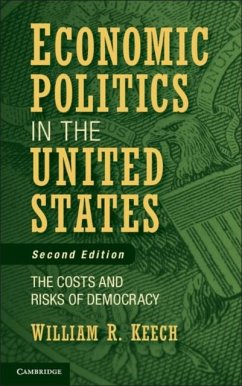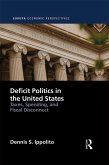Employing macroeconomic performance as a lens to evaluate democratic institutions, the author uses models of political behavior that allow for opportunism on the part of public officials and shortsightedness on the part of voters to see if democratic institutions lead to inferior macroeconomic performance. We have learned more about how and why democracy can work well or badly in the years since the first edition was published. It was not previously apparent how much the good performance of democracy in the United States was contingent on informal rules and institutions of restraint that are not part of the definition of democracy. Since that first edition, the United States has experienced soaring indebtedness, unintended adverse consequences of housing policy, and massive problems in the financial system. Each of these was permitted or encouraged by the incentives of electoral politics and by limitations on government, the two essential features of democratic institutions.
Dieser Download kann aus rechtlichen Gründen nur mit Rechnungsadresse in A, B, BG, CY, CZ, D, DK, EW, E, FIN, F, GR, HR, H, IRL, I, LT, L, LR, M, NL, PL, P, R, S, SLO, SK ausgeliefert werden.
'In this important new edition, Bill Keech, one of the first political scientists to apply macroeconomic tools and research to political questions, revisits his prior inquiry on the 'health' of economic politics. But, in doing so, he also extends his discussion to incorporate many new findings in macro political economy. These additional results enhance our understanding of how and how well representative government performs. What is more, this book reflects the author's qualities: clear in exposition and sober in outlook. Very few social scientists have his scholarly breadth to engage the varied literatures from different disciplines - and even fewer could have written a contribution like this.' Jim Granato, University of Houston









